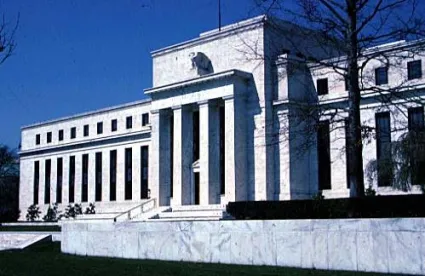On December 7, 2017, the Federal Reserve announced that it will eliminate the use of the Strength of Support Assessment (or “SOSA” rating) as a supervisory tool. The SOSA rating measures the extent to which a foreign banking organization (“FBO”) is in a position to provide support to its U.S. branches, agencies, and subsidiary banks, by assessing internal and external factors such as home country risk. The Federal Reserve currently uses the SOSA rating solely to calculate an FBO’s net debit cap for purposes of daylight overdraft capacity at a Federal Reserve Bank and to determine an FBO’s eligibility for discount window loans. Accordingly, on December 11, 2017, the Federal Reserve issued a proposal to amend its Payments System Risk Policy to eliminate reliance on an FBO’s SOSA rating to calculating its net debit cap. The proposal would also eliminate reliance on an FBO’s status as a financial holding company (“FHC”) to determine its net debit cap.
To limit the amount of intraday credit that a Reserve Bank extends to an institution in the course of settling payments, each institution that may incur daylight overdrafts in its Federal Reserve account has a net debit cap, which is a ceiling on the total daylight overdraft position that it can incur during any given day. Under the Federal Reserve’s Payments System Risk Policy, an institution’s net debit cap is calculated as the institution’s cap multiple multiplied by its capital measure.
An FBO’s SOSA rating currently affects both its cap multiple and capital measure. Moreover, an FBO with a SOSA rating of 3 or less is presumptively ineligible for a positive net debit cap. Similarly, an FBO’s status as an FHC currently affects its capital measure.
Under the proposal, if an FBO is based in a jurisdiction that adheres to the Basel Capital Accord, the FBO’s creditworthiness self-assessment for purposes of determining the cap multiple would be based on (1) the FBO’s U.S. Operations Supervisory Composite Rating and (2) the Prompt Corrective Action designation that would apply to the FBO if it were subject to the Federal Reserve’s Regulation H. An FBO’s capital measure would equal 10 percent of its worldwide capital. Neither the FBO’s SOSA rating nor its status as an FHC would affect its net debit cap. These revised standards would generally align the calculation of an FBO’s net debit cap with that of a domestic institution, though domestic institutions have a capital measure equal to 100 percent of capital rather than 10 percent.
Comments are due on the proposal within 60 days of its publication in the Federal Register.
While the proposal recognizes that eliminating SOSA ratings also requires adjustments to the Reserve Banks’ standards for determining FBOs’ access to primary credit at the discount window, it does not indicate how and when the Federal Reserve will make such adjustments.




 />i
/>i

